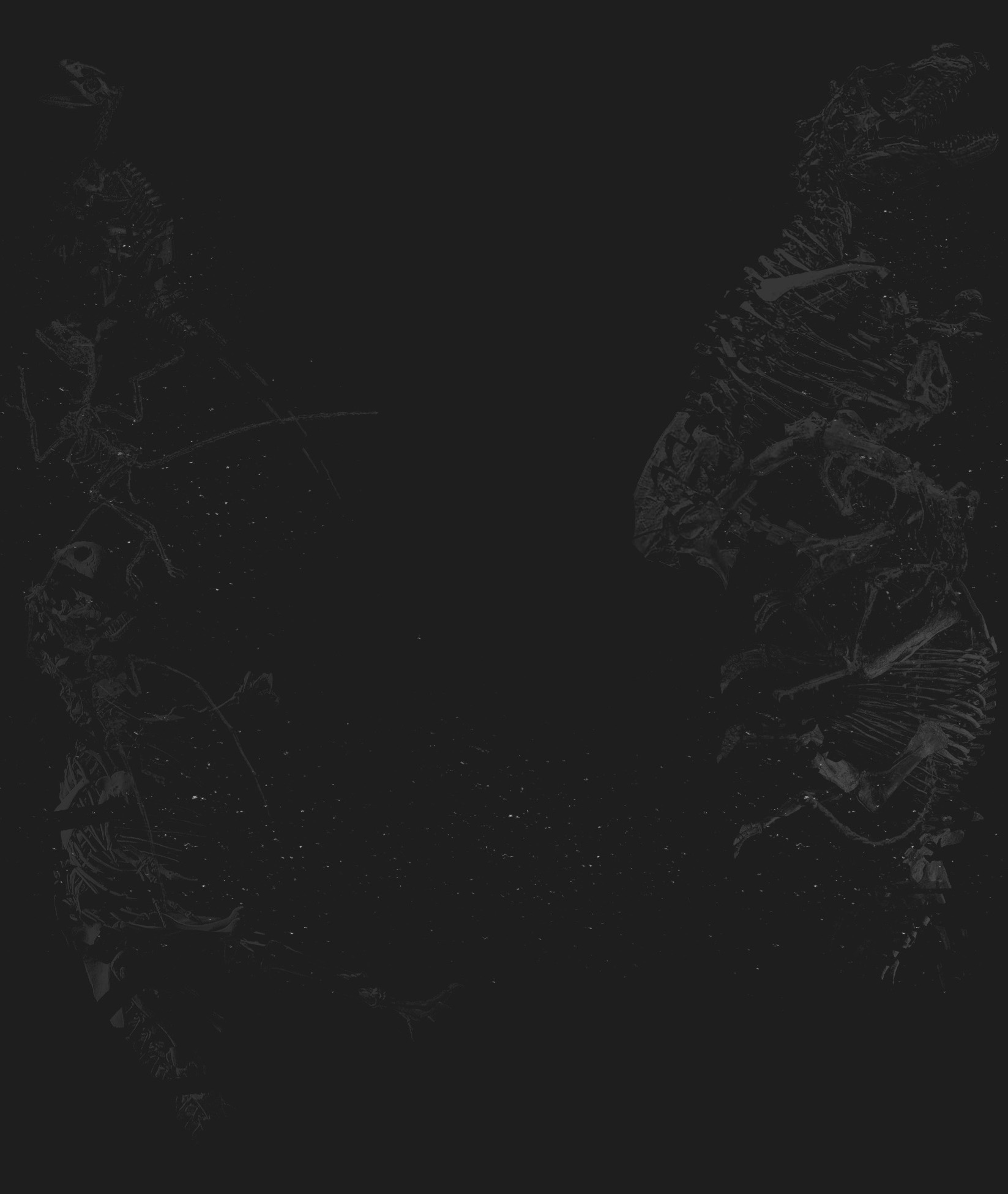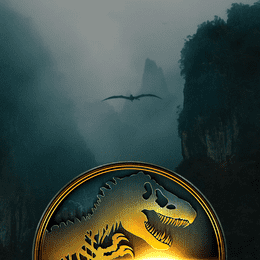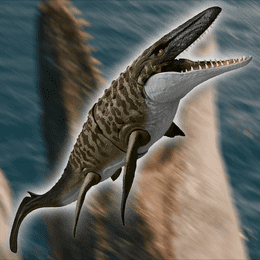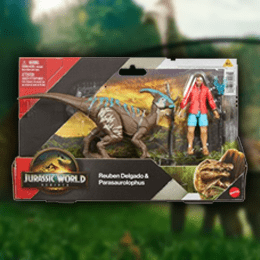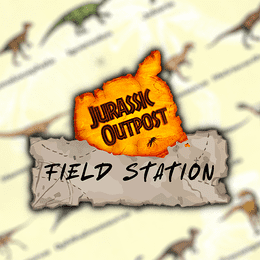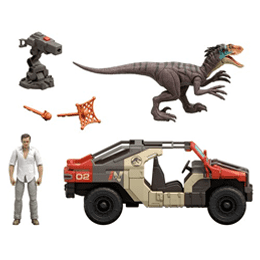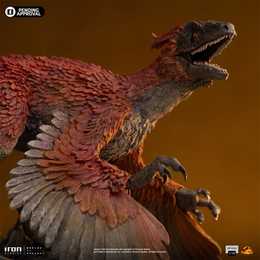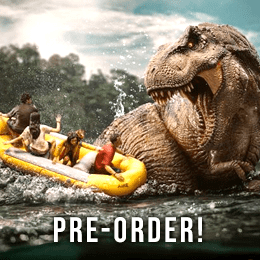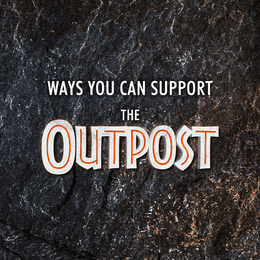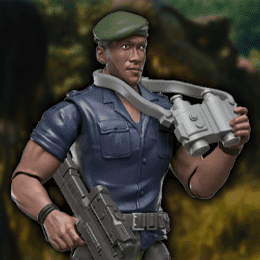Stephan Schutze Interview
Composer and Sound Designer for Jurassic Park: Operation Genesis (2003)
20th May 2020
Tim Cianfano recently interviewed Stephan Shutze the composer and sound designer of Jurassic Park: Operation Genesis, the park building simulation video game released in 2003.
Almost 2 decades after the games release, Stephan describes in detail his experience with the creative process on scoring the game, as well as his experience in sound design.
TIM: How did you craft such a unique and original soundtrack that stands entirely on its own, but still manages to capture the spirit and feel of the films without heavily emulating John Williams already established work?
STEPHAN: One of the main things that you’ve got to realize is that when you’re working on an IP, whether it be Star Wars or Star Trek, is that you don’t always have the actual rights for the music. We were working for Universal and making a Jurassic Park game, but that doesn’t automatically mean we’ve licensed the music because it can often be a separate thing. At the earliest stages of writing I wasn’t able to use the Jurassic Park main theme. So what you’ve effectively got is this demand that says, “This must sound like Jurassic Park without sounding exactly like Jurassic Park”. There’s a difficulty there, because you need to match the tone of the music that you’re trying to sound like without being able to use it directly.
One thing with John Williams was I could look at his music and see what kind of instrumentation he uses in his work. He uses lots of woodwinds in this sort of light and fluffy way, and he uses strings in these nice long beautiful sorts of flowing ways as well as brass in these big bold ways. So if I emulate that style, it means that at the very least I’m already starting to sound a bit like John Williams. I’m sure if you listen to his other music you’ll hear it. If you listen to his work on Star Wars, you’ll hear parts that sound a little bit like Jurassic Park, and you might hear a little part that sounds like E.T, and Superman and so on – because of course he has his particular style. Other composers such as Hans Zimmer and James Horner have their own particular styles – and the choice of the instrumentation used is part of their unique sound.
To be honest, the way I had to do that was to go out and get a hold of some of John Williams other scores and look at how he writes his music. At the time (because this is 20 years ago) there wasn’t a lot of material that was easily available, because the Internet was not as accessible as today. You couldn’t just jump into Google and easily search for music sheets like you can now. So I contacted a local music distributor and asked what John William’s pieces they had – and they had an arrangement from Star Wars: Episode I that was designed for a school orchestra. It was a more simplified version that was a suite of four of the main pieces, but what it gave me was the ability to look at how the instruments were laid out by John Williams and how he used the instruments in combination. So, I took a bit of time studying a lot of music he’s written and dissecting in an attempt to get a really good idea of what he does and how he gets his distinct sound.
When I started to write the music, in some pieces I would get really close to hinting at the theme and use the first few notes and right as it would start to have that familiar sound, I immediately would move away from it. And part of it was establishing my own style, but part of it was kind of just a necessity of making sure that we didn’t get in trouble for basically using the themes too much in the initial stages.
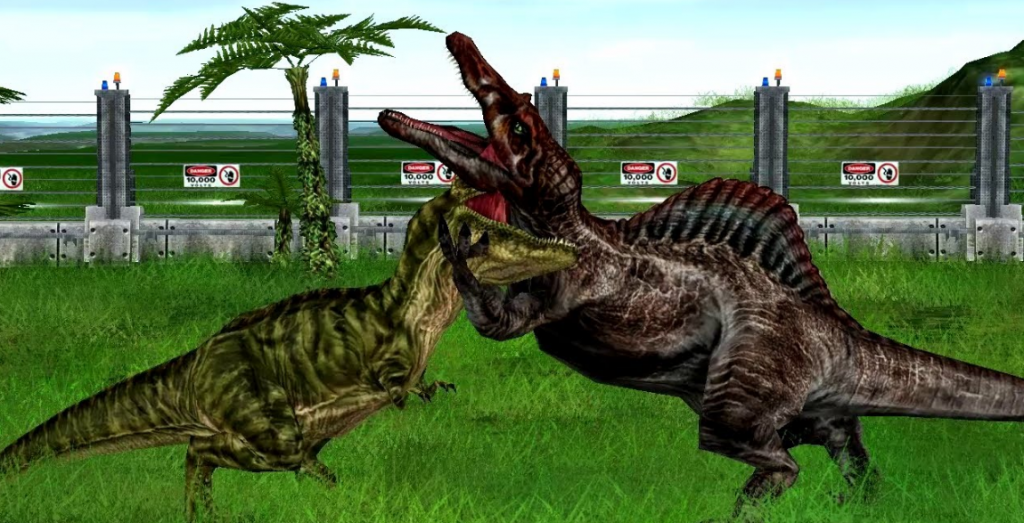
What happened eventually was that Universal decided they wanted to use Williams’ theme for the for the game because of course, it’s Jurassic Park after all. At that stage it was when Jurassic Park 3 had just been released. Universal paid to have the rights to use the opening theme from that film’s score, which was actually written by Don Davis, who had the rights to use the main Jurassic Park theme. So, as soon as Universal hands me the score from the third film I’m told “this is Don Davis’ theme for Jurassic Park 3, you just need to rearrange it for your size orchestra,” because I had access to a 70 piece orchestra compared to the 120 piece one they used for the film. So essentially at this point in the process, we’ve now kind of paid to be able to use that thematic material, which opened a few more doors in the writing process. I still couldn’t obviously just go crazy with it, but it did put us in a sort of weird legal grey area because we’ve now basically paid to use the theme. To be honest, I don’t know that anybody involved was ever entirely aware of what was going on, because the legal complexities of music, performing, and digital rights are something so complex and multifaceted.
What it came down to was this – it was an official Jurassic Park game. We paid for the rights, we were making this for Universal, who were the people who own it. So they wanted it to sound like Jurassic Park, and I wanted it to sound like Jurassic Park, but at the end of the day I didn’t want to just rip off John Williams.
What approach did you take with finding the right emotion for each track and motif, and deciding the right instrumentation to use when the emotion called for it?
So, there are two requirements involving essentially two states of gameplay. The first can be essentially described as “I’m just doing stuff in the park” – so the player would be building an enclosure, paths, or the park shop for the visitors to buy their hamburgers and stuff. That’s all fairly low-key and takes up a lot of the game. So, in my mind, in order to bring the player into the game – the music for those parts would be very broad and ambient. Just to basically making them feel like they are in Jurassic Park, but they are just doing their own thing and focused on building.
Then we had situations like, “oh crap! The dinosaurs have broken out, there’s a tornado coming, and everything’s gone crazy!” For those we have the really bombastic sort of music. So the bombastic stuff just needed to maintain that frantic sense of energy. For those tracks, I’d pick some sort of rhythm and have the low instruments just doing something like “dun-dun-dun” or something like that. And then there’d be a little sort of theme that came in over the top in the brass or whatever, and those were supposed to just be a kind of little fan-fairs that were basically reminding you that, “this is Jurassic Park.”
I thought an easy way to accomplish this would be to play the first few notes of the Jurassic Park theme for a sense of familiarity, but by the moment you’ve caught on – the music’s kept going on somewhere else, finishing with a different set of notes than you were expecting. It’s essentially a little bit like a game of hide and seek – where I play the first few notes to get your attention – then I run away and go somewhere else that you weren’t expecting – but you know it sounds JUST like Jurassic Park.
Here is a bit of background that’s actually kind of important: I really like Jurassic Park, but what was significant to me is that I was 10 years old when Star Wars came out, which literally changed my life. My brother bought me the double record of the Star Wars Soundtrack when I was young, and I swear I wore the groove out in that with the record player because I played it so much. Being classically trained as a French horn player, his music also speaks to me a lot because he writes these beautiful horn parts. So John Williams music was really significant to me growing up, he’s written some amazing stuff. I still want to work on a Star Wars project sometime – I’ve never worked on one and it’s something that I really want to do.
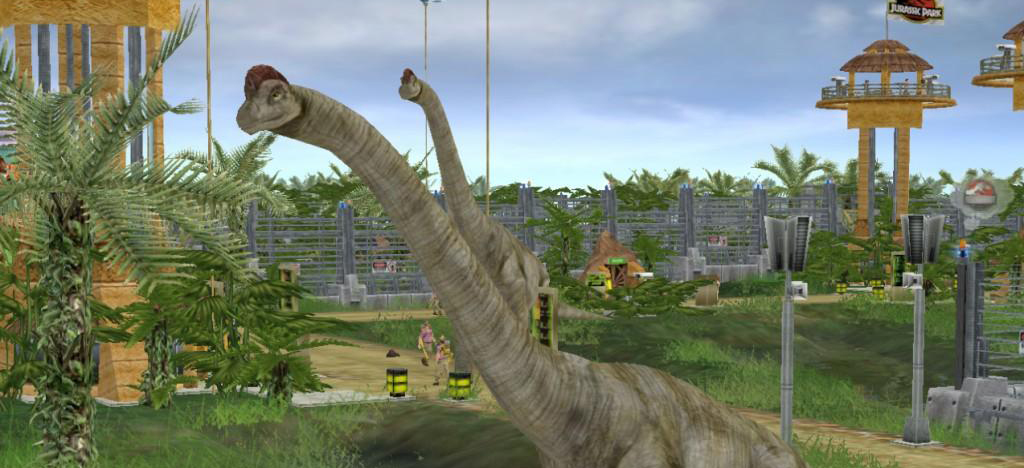
But the main thing for me in Jurassic Park is the scene in the movie where they’re all sitting in the Jeep and they see the Brachiosaurus for the first time, I still to this day, even having worked on that project, can’t watch that scene without basically shedding a tear, because that is one of the most beautiful scenes in any movie ever. Especially if you take it in the context of the time with the ground-breaking visual effects. Back then, those CG graphics looked so real, and everybody in the cinema was just blown away – because they’re looking at what looks like a dinosaur. It was a gob-smacking cinematic moment, and I still think that that particular bit of music is probably one of the best things John Williams has ever written. So, to be asked to emulate that was terrifying and also wonderful, but what it allowed me to do is really listen to how he constructs his music and bring that style into my process.
One of my favorite pieces out of the music I wrote is the piece called “Sleeping Dinosaurs.” It doesn’t actually emulate off anything from John Williams at all – but it’s got that style of long strings. It’s just that style of really long calm really beautiful and it’s supposed to emulate all the all the happy wonderful parts of Jurassic Park, not the scary parts. I think I do maybe have two notes from the theme in there, but nothing significant.
Did you have any other influences in mind when composing (classical, other films)? How much input did Universal have on your work?
Here’s a bit of backstory: even though I’ve had a college degree and University degree, I’ve never had, and I still haven’t had any formal composition, arranging, scoring, or orchestration classes. Literally my ability as a composer is all basically self-taught. I was trained as a classical horn player in the army in Australia, but that’s the bulk of my musical education.
I’ve never been very good at harmony. I’ve always basically just stumbled my way through things musically. Operation Genesis was my second gig ever. I had scored the Starship Troopers game prior. It’s also important to note that I was essentially writing music using really bad sound libraries back then. But when we started to work on the project, Universal asked me to send them a few samples of what I had written. When they heard it, they told me that the music was really good, but the sound libraries I was using are terrible and told me to get quotes for a real orchestra. I was absolutely blown away! It felt like a weird dream. Everyone who writes music dreams of working with an Orchestra, but you don’t think it’s ever going to happen because it’s a very expensive endeavor. To have Universal like what I’d written and pay for an orchestral recording was a very big deal
It’s important to note that everyone was kind of new to this at this point. Keep in mind: this was 20 years ago, there had not been that many orchestral scores done for games at that time – there have been a few, but not that many. The one I did was the first one ever done in Australia. The budget they had given us was very interesting, because the Australian dollar was tiny back then, it was I believe worth half the US dollar. So they were getting a great deal, because it was going to cost them less to have us to record with the world class orchestra in Australia then it would have cost them to use a university orchestra in America. They essentially just cut us a check and let us go nuts.
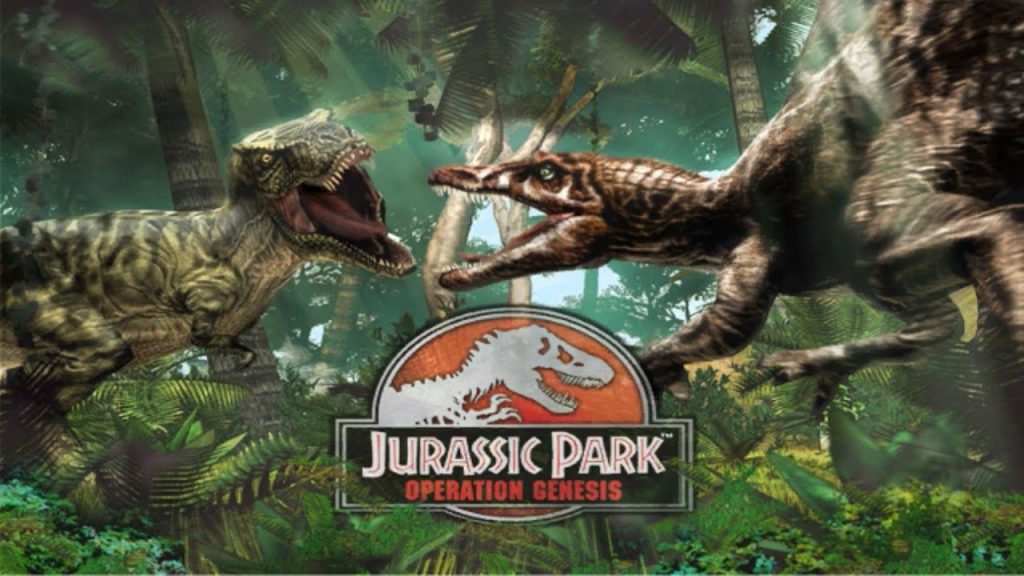
As far as them checking up on me, apart from the original first couple of pieces that I did, they were just like, “go off and record what you have, and once you’ve got a recording send some to us and we’ll see how it goes”. I did divide the recording sessions that we had a few months apart so I could write some music, get it recorded, and see how it was going – because I’ve never done this before – and then write the rest.
Now if you look at the way that the industry works these days, had we made it now it wouldn’t have happened like it did. There’d be 50 people sitting on my shoulder every day making sure that it was being done properly. So looking back on it they kind of just let me go do my own thing, which is insane, because I had never really done this before. I had no qualifications and no experience. They just listened to the samples of the music I sent them and gave me an orchestra to use. So I think it was a simpler, more naive age as it were.
Why was the “missing track” missing from the game? On your website you state that you weren’t happy with the recording – what in particular put you off by it?
One of the things that’s difficult as any sort of artist (and I use the term artist broadly), is that regardless of the type of art form you do, there’s always this internal thing where you are going to be more critical of your own work in ways that other people aren’t. You have a particular idea in your head of what you are attempting to create, and it doesn’t always come out like you anticipated.
The case with the Missing Track was it basically had all these brass going (humming the danger motif from Jurassic Park) and then you got the bom-bom-bom (blaring low brass) sort of thing. The problem is for me, is from a musical point of view these are all semiquavers which are 16th notes for Americans
In theory, everybody should be playing the note at exactly the same time, but what we kind of got was this sort of thing where not everybody in the orchestra was as in sync with each other as they were in all of the other tracks. So you would have 10 people that are all playing the same few notes, but they’re all not in sync. It didn’t sound as clean as I would have liked. We did a couple of takes of it, and because it was quite fast and jumping around a little bit, it felt like the orchestra never really settled into the piece for that track in particular.
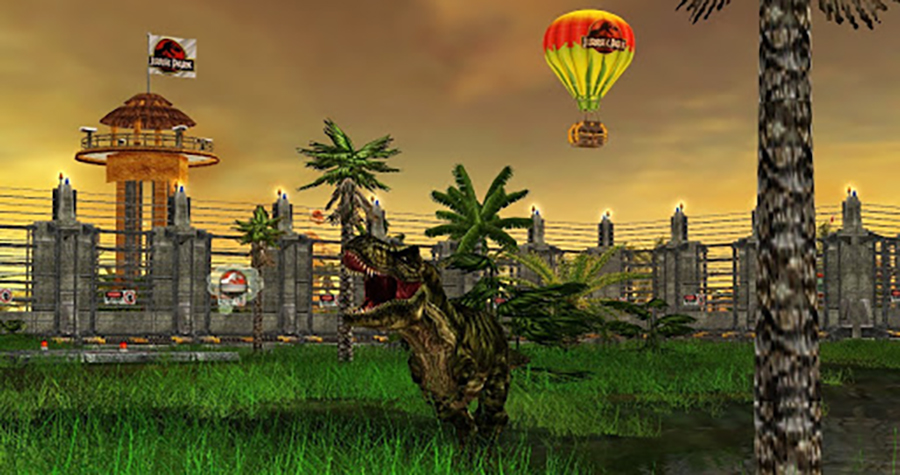
With Jurassic Park being such an important franchise and having a high expectation following it, I just made the decision that I wasn’t happy with how the piece came out. So, I just pulled it and decided not to include it in the soundtrack. It’s interesting to point out that there was nobody else involved in that decision, which would be somewhat unheard of now. I was the essentially the entire audio department – I did all the sound design, I did all the music and implementation stuff like that, so I was in a position where I could just say “I’ve decided this piece of music should not be included because I don’t feel it’s up to a high standard.”
What’s a brief history of your time at Blue Tongue working on the project?
I functioned as the entire audio department at Blue Tongue. I was brought on because someone that I knew had been working there, they reached out to me a year prior and suggested I come in for an interview. At that stage they were going to just bring me on as a contractor to write some music for the Starship Troopers game, but after that they ended up engaging me full-time.
For Starship Troopers, I did all the sound design, all the music, all the video editing for the marketing and so on. I even did all the balancing for the units because there was nobody else there to do that at that time, and because I played Warhammer back then, they figured I knew exactly what I was doing. Since we were such a small team, we literally had to do 20 different jobs each. It was only my first gig, and it already had me doing so many different things.
Again, that doesn’t happen these days. So I was basically working at Blue Tongue from that point on. With Jurassic Park being their next project, I was already the in-house audio and music guy and so I just got the gig by nature of working there.
For Operation Genesis, I did more than just compose the entire score. I had to create all the dinosaur sounds, and I even had to implement them by copy pasting lines of code to put the sounds into the game as well. After Jurassic Park – I did two more games with orchestras as well, the Polar Express and Nicktoons Unite.
I was about to say, it sounds like you’ve got so many hats on at once!
Well I had incredible opportunities back there, but I was also working insanely hard. So many of us back then were working a hundred hours a week sometimes, so in some ways it was the bad old days of the game industry. Unfortunately, the games industry does still do that in some places.
We were very much underpaid and overworked, but I had an opportunity that was so incredibly rare. Even these days people who get to work with live orchestras are still fairly rare, It’s not something that’s common.
Have you ever considered going back to composing? (VR Projects, Sound Librarian)
It’s a tricky thing to talk about, and it goes back to what I mentioned before about how you’re never 100% happy with the work you do.
There is something that I call the “beautiful curse”, and it means that I can be very proud of the music that I write, but the music that I have written will never affect me in the way that other people’s music has. Don’t get me wrong, I’m very proud of what I have written, especially the score for Operation Genesis. However, other people have written music that will have me in tears every time I hear it, because it is just so beautiful, and I feel you just can’t have that attachment with your own work. I’ve even been meaning to create some videos or even write a book on the concept.
Like I mentioned before, the problem with me is I was I never really formally trained as a composer. I’m not very good at harmony, I’m a very slow writer.
I’m collaborating with people at the moment on a project, and during a testing phase one of them literally wrote out a piece of music in two hours – and it sounded phenomenal. I’m looking at that thinking to myself I couldn’t write that if I even had two months. From that point of view, there’s the realization that I would like to write music, but I just can’t compete with the people who really can effortlessly write music to that extent.
I also have a great level of professional ambition. There are certain things that I want the opportunity to work on. Like I said before – at some stage in my career, I really, really, really want to work on a Star Wars, Star Trek or a James Bond project, or even an anime. That being said, the chances of me working on those projects as a composer are very low.
However, I’ve actually had a great deal of luck and personal success working in the field of Sound Design. I have a company called Sound Librarian, and I actually started doing some stuff for a company in LA nearly 2 years ago. Somebody contacted me and asked me for several different sound effects for them to use. Now I had no idea what that was going to happen with them, and it took 12 months before I found out what they used those sounds for.
So where are those sounds being used? My sounds are now used in trailers for major films/franchises like Top Gun 2, Fast and Furious, Captain Marvel, The Walking Dead, and so on. So now all of these huge Hollywood films have sounds that I have made in their trailers. From an ego point of view, that’s an amazing accomplishment for me. I can put something as significant as that on my show reel and feel confident in my work. The level of satisfaction I get out of this is immense, because the sounds I have made have now been used in this really cool medium that’s being seen by people everywhere.
And so from that point of view my realization is this: I am a good sound designer, I am a good location recorder – but I feel I am an average composer at best.
What’s your favorite Dinosaur after working on a game filled with them?
Before I tell you what my favorite dinosaur is, I want to give you a brief backstory on the process of how I created the sounds for the dinosaurs. In fact – it’s really weird that you contacted me now, because somebody reached out to me a few days ago asking me how I made the sounds for Operation Genesis – and I’m blown away how people are still interested after all these years.
During development we had very, very simple resources to create the dinosaur sounds with. I had some of these sound libraries from a company called Sound Ideas. Now almost all of them were like 30-year-old libraries at the time, and they were very basic – but they did have some animal sounds.
Many people who would use those libraries would just grab a sound and drop it into a movie without doing anything to it. You’ve probably heard them before – there’s a famous bear sound or a monkey sound, but I never wanted to do that. What I did for the Dinosaurs was I took different animal sounds and I pitch shifted them significantly, in some cases 4 octaves or more.
Interestingly enough – pretty much all of the herbivores are actually pitch shifted birds, which actually work quite well because dinosaurs and birds are related. If you take a recording of a tiny bird like a sparrow and you pitch shift it – it’ll actually often sound like a bigger bird such as a toucan or macaw because they are structurally very similar. When I took the bird sounds and pitch them up four octaves, all of a sudden they just work for the dinosaurs.
I think in a lot of ways I liked all of the herbivores. The large ones like the Brachiosaurus and some others I pitched up the sound so much they almost sounded like whales. They just really feel majestic and gentle. I really liked the character of the herbivores since I felt they had more character. It felt more dynamic because you could watch them do things like go to sleep, eat, or something silly like scratching their bums or whatever herbivores do in their free time. I felt the Carnivores were a bit simpler, as they would just roar and kill things and not much else.
The one Dinosaur that I really liked the look of, as well as its sounds and behavior, was the Parasaurolophus. It’s also a very colorful one as well, with its big head and all this color along the side. It was just one that I really, really liked. In fact, I even bought myself a plastic model kit of it back then. I’ve never heard of it until we played the game. I think what made it stand out to me was how different it was – and I was really happy with the sound design I did for it.
Looking back after almost 20 years now, is there anything else that comes to mind with revisiting your work?
I’ve got this ego shelf. It’s a bookshelf where I’ve got all the games that I’ve ever worked on and an award I got once as well. I have worked on lots of projects, some which have been really good, and some of them not so good. But I look at Jurassic Park as a game and think it wasn’t the greatest game. By no means was it bad, but from a sim point of view I feel we could have done some things better. All these years later, It seems to have been a game that people just really like. There are people who are still really digging it after all these years and that’s a wonderful thing.
It’s really nice to know that people are enjoying my work on the project so many years after the fact. I think anybody, even for people who are famous, (I’m not suggesting I’m famous) It’s nice to hear that people like your work. I mean if you’re John Williams, it’s probably pretty obvious that he knows that loads of people like his work. But for the rest of us – we do what we get paid to do (which can be nice) but we like to hope that people really like the stuff that we create.
I did some music for a mobile phone game years ago. It was one of the really early Need for Speed games on one of the very first color phones (the ones that predated smartphones). I had a guy like 10 years after I had done it who reached out to me and said, “I’ve spent all this time trying to track you down! I’m a doctor in India, and when I was a student, I always loved the game but I lost my phone. Do you have the music anywhere? I want to make it my ringtone.” and it was just hilarious he spent years trying to find me!
As a creative individual, we try to share something that’s important to us with other people. So it’s really, really nice to hear that my work is something that you and many others enjoy – and even all these years later it’s something that someone can still get enjoyment out of. I very much appreciate your kind words, I do.
A huge thanks to both Stephan Schutze and Tim Cianfano for the interview!
You can listen to and download Stephan Shutze’s amazing score for Jurassic Park: Operation Genesis here.
Be sure to also check out his work in sound design at Sound Librarian here.
Special thanks to Anthony Feliciano, Bernard Kyer, and Joe Scanlon for taking time to help edit/transcribe this interview.


